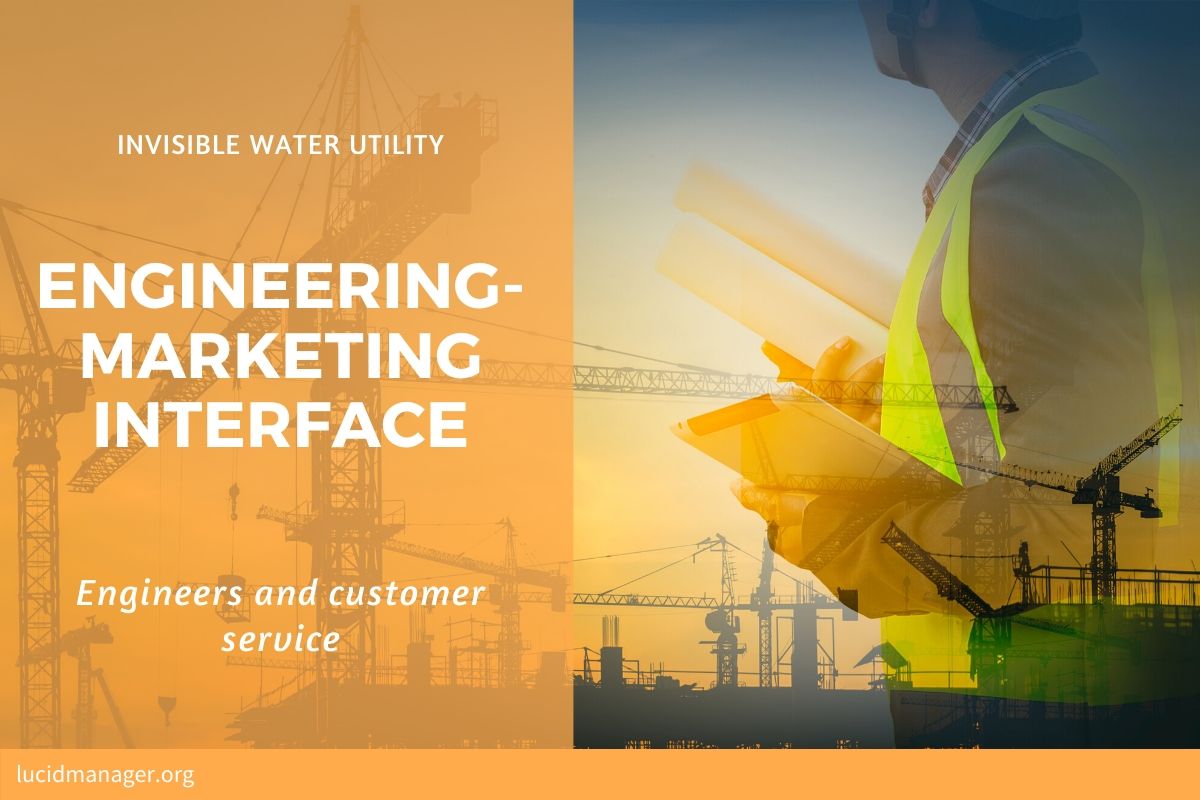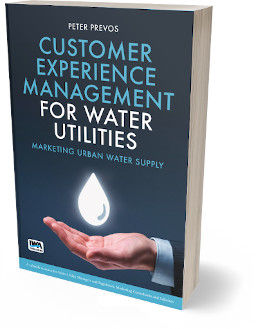
The Engineering-Marketing Interface in Water Utilities

Peter Prevos |
814 words | 4 minutes
Share this content
Judging by the available publications and conference papers, engineers, scientists and economists dominate the water industry. This industry gives much less attention to research into customer service than to technical issues. The application of marketing theories to provide value to customers of water utilities has not received a lot of attention, given the monopoly status of service providers. The purpose of this article is to share some thoughts about the relationship between engineering and customer satisfaction. This article introduces the concept of the Engineering-Marketing Interface to help understand these relationships.
Water Utility Paradox
A paradox appears to exist in the provision of reticulated water services. Providing service at a high level of technical proficiency is a necessary, but not a sufficient condition to ensure customer satisfaction. To further research this problem, we interviewed several stakeholder organisations of reticulated water customers. These interviews investigated the factors determining customer-centric service provision. These interviews revealed that a ‘professional orientation' could exist, obstructing the creation of positive customer experience. Focusing on the technical aspects of service delivery carries the risk of losing sight of the human dimension.
Technology is predictable; consumer behaviour is unpredictable
Providing reticulated water services requires a high level of investment in technology to be able to provide a safe and reliable supply. As such, engineers dominate the industry. These professionals develop and maintain the infrastructure required to deliver core services. Non-technical people often wrap engineers in stereotypes, highly focused on the technical task at hand but lacking marketing skills. However, in its purest essence engineering and marketing complement each other. In the words of marketing professors Philip Kotler and Sidney Levy:
Marketing is customer satisfaction engineering.
Attitudes of Engineers
In the delivery of water services, the attitudes and actions of engineers towards customer service are important as this directly impacts on the experience of customers. Engineers mainly undertake ‘back-stage' roles to determine how to deliver core services to customers. The ‘front-stage' customer service staff manage support services, such as complaints handling and billing.
A water utility is in this respect much like an amusement park: invisible staff members make all the rides happen, while the staff that interact with customers enhance the experience. The biggest difference between an amusement park and a water utility is that most customers never meet their service provider in person.
The development of an effective engineering-marketing interface between engineering and customer functions within an organisation is vital for providing customers a high level of service. Both marketing and engineering literature acknowledges the importance of good relationships between customer service and engineering personnel. Researchers have identified several sources of potential conflict between these two functions. The most common causes:
- Polarisation of behaviour through a tension between standardisation and customisation.
- Stereotyping of personality traits of the two professional fields
- Engineers and marketers have different educational backgrounds and occupy different ‘thought-worlds'.
I conducted a pilot study to test whether such differences between customer service and engineering employees exists in water utilities. Employees were asked a series of questions about the relationship between engineering and service functions.
The Engineering-Marketing Interface
The results of this pilot into the Engineering-Marketing Interface study reveal a small, but statistically significant difference between the views of employees with engineering education and those without engineering education. Engineers viewed the potential for tension between customer service and engineering functions as lower than those without engineering qualification.
This effect was found to be the case for all items in the survey, except for the statement that “all engineers should know something about customer service”, which found strong agreement among all respondents. In other words, engineers perceived the tension between customer service and engineering functions as less important than other employees did. Another part of the survey revealed engineers having a lower level of empathy with customers than other staff. Analysis indicated that this finding corroborated the other results.
Marketing for Engineers
The core of the issue is that technology and science are predictable―engineering problems can be solved in neat equations. Human behaviour is more complicated and cannot be captured in models and equations. Academics have extensively researched tensions between marketing and engineering employees in the manufacturing industry, but not in service provision. My dissertation describes the results of detailed research into this issue. The research found a small but significant tension exists between the two professional groups in Australian Water utilities.
Finally, one way to minimise these tensions is by teaching engineers the principles of marketing. If you are interested in marketing for engineers, then view my guest lecture on this topic.
If you like to find out more about using marketing theory to manage the experience of water utility customers, then please consider reading Customer Experience Management for Water Utilities by Peter Prevos.

Customer Experience Management for Water Utilities: Marketing Urban Water Supply
Practical framework for water utilities to become more focused on their customers following Service-Dominant Logic.
Share this content


